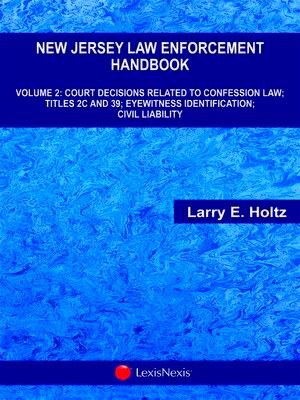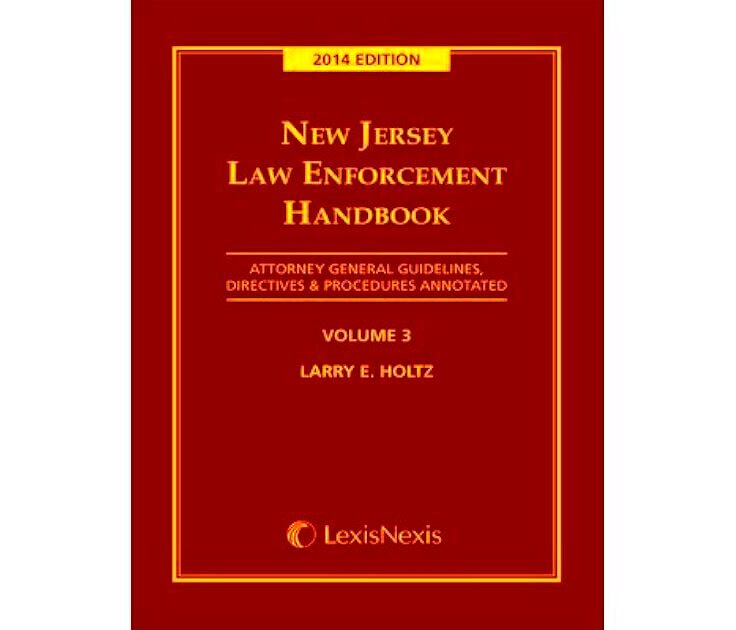New Jersey Law Enforcement Handbook: Key Legal Guidelines
New Jersey law enforcement plays a crucial role in maintaining public safety and upholding the law. This system is made up of various agencies, including local police departments, county sheriff’s offices, and state police. Each agency has unique responsibilities, but they all work together to ensure the safety and security of the community. Understanding how law enforcement operates in New Jersey helps residents know their rights and the duties of the officers serving them.
Overview of Law Enforcement Roles and Responsibilities

Law enforcement agencies in New Jersey have a variety of roles and responsibilities aimed at promoting public safety. Here are some key functions:
- Crime Prevention: Officers work proactively to deter crime through community engagement and visible patrols.
- Investigation: When crimes occur, law enforcement investigates by gathering evidence, interviewing witnesses, and apprehending suspects.
- Traffic Enforcement: Officers ensure compliance with traffic laws to reduce accidents and enhance road safety.
- Community Policing: Building relationships with community members is essential for fostering trust and cooperation.
- Emergency Response: Law enforcement responds to emergencies, including accidents, medical crises, and natural disasters.
These roles require officers to act with integrity and professionalism, ensuring that justice is served while respecting the rights of individuals.
Understanding New Jersey Laws and Regulations
New Jersey has specific laws and regulations that govern law enforcement practices. Familiarizing yourself with these can help you understand how the legal system works. Some important areas include:
| Area | Description |
|---|---|
| Criminal Law | Covers offenses like theft, assault, and drug-related crimes. |
| Traffic Law | Regulates vehicle operation and penalties for violations. |
| Constitutional Rights | Protects citizens against unlawful searches and seizures. |
| Use of Force Policies | Guidelines on how and when officers may use force. |
Understanding these laws is vital for citizens and officers alike, as it helps maintain order and fairness within the community. Law enforcement agencies often provide resources to educate the public about these regulations, fostering a safer environment for everyone.
Important Procedures for Law Enforcement Officers
Law enforcement officers in New Jersey follow a set of essential procedures to ensure public safety and uphold the law. These procedures not only guide their actions but also protect the rights of citizens. Here are some key procedures that officers must adhere to:
- Identification: Officers must identify themselves and provide their name and badge number when requested by citizens.
- Report Writing: Accurate documentation is crucial. Officers are required to write detailed reports for incidents, arrests, and investigations.
- Evidence Handling: Properly collecting, labeling, and storing evidence is critical to maintaining its integrity in court.
- Communication: Officers must maintain clear communication with dispatch and fellow officers during incidents to ensure a coordinated response.
- Community Engagement: Building rapport with community members helps foster trust and cooperation, which is vital for effective policing.
These procedures are designed to enhance accountability and ensure that law enforcement operates within the legal framework while serving the community effectively.
Rights of Citizens Under New Jersey Law
Citizens in New Jersey have specific rights that protect them during interactions with law enforcement. Knowing these rights empowers individuals and helps them navigate legal situations. Here are some essential rights:
- Right to Remain Silent: Citizens have the right to remain silent when questioned by law enforcement to avoid self-incrimination.
- Right to an Attorney: Individuals have the right to consult with an attorney before answering questions or during any legal proceedings.
- Protection Against Unreasonable Searches: Law enforcement cannot search a person’s property without probable cause or a warrant.
- Right to Due Process: Everyone is entitled to fair treatment through the judicial system, including a fair trial.
- Right to File Complaints: Citizens can file complaints against law enforcement if they believe their rights have been violated.
Understanding these rights is essential for citizens to protect themselves and ensure that law enforcement respects their legal protections.
Use of Force Guidelines in New Jersey
In New Jersey, the use of force by law enforcement officers is governed by strict guidelines to ensure that it is justified and proportional to the situation. Here’s a breakdown of these guidelines:
- Reasonable Force: Officers may use force only when necessary to accomplish a lawful purpose. The force must be proportionate to the threat faced.
- De-escalation Techniques: Officers are trained to use de-escalation techniques to resolve situations without resorting to force whenever possible.
- Use of Non-lethal Options: Before using lethal force, officers should consider non-lethal alternatives, such as tasers or pepper spray.
- Reporting Incidents: Any use of force must be reported and documented, ensuring transparency and accountability.
- Training Requirements: Officers receive ongoing training on the appropriate use of force and how to handle high-stress situations.
These guidelines aim to protect both officers and citizens by promoting responsible use of force and reducing the risk of unnecessary harm during police interactions.
Handling Community Relations and Public Interaction
Building strong community relations is vital for effective law enforcement in New Jersey. Officers must engage positively with the community to foster trust and cooperation. Here are some key strategies for handling community relations:
- Community Policing: This approach focuses on collaboration between officers and community members to identify and solve problems related to crime and disorder.
- Public Outreach Programs: Organizing events such as safety workshops, neighborhood watch meetings, and school presentations helps bridge the gap between law enforcement and citizens.
- Active Listening: Officers should listen to community concerns and feedback, showing that they value public input and are committed to addressing issues.
- Cultural Competency Training: Training officers to understand and respect diverse cultures enhances interactions with various community groups.
- Transparency: Being open about police practices and policies builds trust and ensures the community is informed.
By prioritizing these strategies, law enforcement agencies can create a positive environment where community members feel safe and supported.
Reporting and Accountability in Law Enforcement
Accountability in law enforcement is crucial for maintaining public trust. New Jersey has implemented various reporting mechanisms to ensure that officers are held responsible for their actions. Here’s an overview:
| Mechanism | Description |
|---|---|
| Body-Worn Cameras: | Many officers are equipped with body cameras to record interactions, providing transparency and evidence for incidents. |
| Internal Affairs Investigations: | Allegations of misconduct are investigated by internal affairs units to ensure accountability within the department. |
| Community Oversight Boards: | These boards consist of community members who review police practices and policies, offering recommendations for improvements. |
| Public Reporting: | Agencies are required to publish reports on use of force incidents, complaints, and other metrics to promote transparency. |
By implementing these accountability measures, law enforcement in New Jersey aims to build trust with the community and ensure officers act responsibly.
Frequently Asked Questions
Here are some frequently asked questions regarding law enforcement in New Jersey, which can help clarify common concerns:
- What should I do if I feel my rights are being violated? If you believe your rights are being violated, you can remain calm, document the situation, and file a complaint with the police department or contact an attorney.
- How can I report police misconduct? You can report misconduct to the internal affairs division of the law enforcement agency involved or contact a local civil rights organization.
- Are police required to identify themselves? Yes, officers must identify themselves by providing their name and badge number when asked by a citizen.
- What is the role of community policing? Community policing aims to build relationships between law enforcement and the community to collaboratively address safety and crime issues.
- How can I get involved with my local police department? You can participate in community meetings, volunteer programs, or neighborhood watch initiatives to engage with local law enforcement.
These FAQs aim to address common concerns and promote a better understanding of the role of law enforcement in New Jersey.
Conclusion and Summary of Key Points
In summary, understanding law enforcement in New Jersey is vital for fostering a safe and respectful community. Key points discussed include:
- Community Relations: Strong relationships between law enforcement and the community enhance trust and cooperation, allowing for effective policing.
- Officer Procedures: Adhering to established procedures ensures that officers act responsibly, protecting citizens’ rights and maintaining public safety.
- Citizen Rights: Knowledge of citizens’ rights helps individuals navigate interactions with law enforcement, ensuring that their legal protections are upheld.
- Use of Force Guidelines: Clear guidelines for the use of force help protect both officers and the public by promoting responsible and proportional responses to threats.
- Accountability Measures: Reporting mechanisms and oversight ensure that officers are held accountable for their actions, fostering transparency within law enforcement agencies.
- Frequently Asked Questions: Addressing common concerns empowers citizens with the knowledge they need to engage with law enforcement confidently.
By understanding these key aspects, residents can better appreciate the role of law enforcement and actively participate in creating a safer community.


